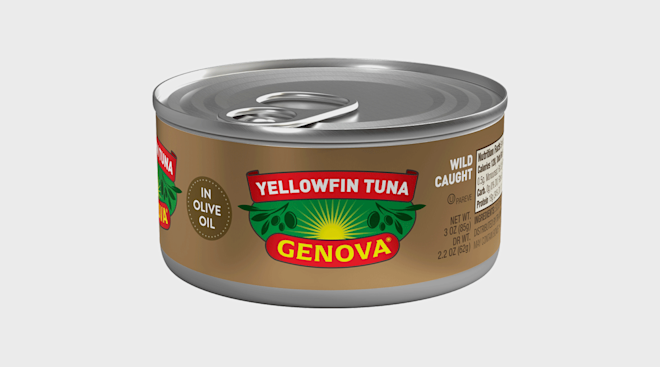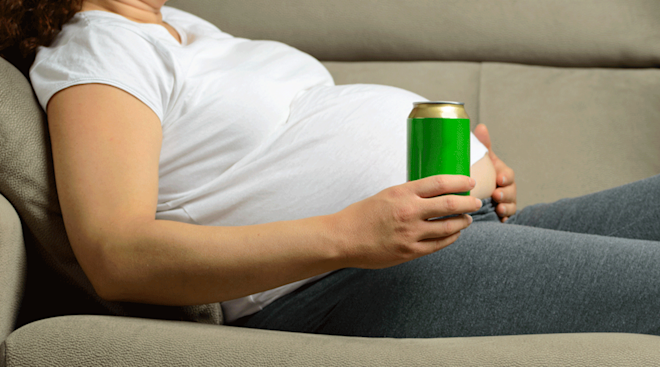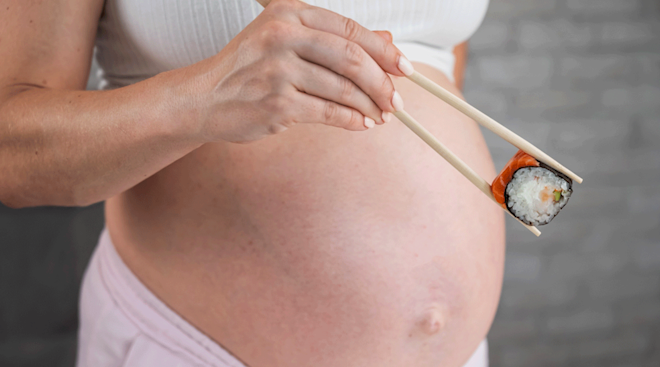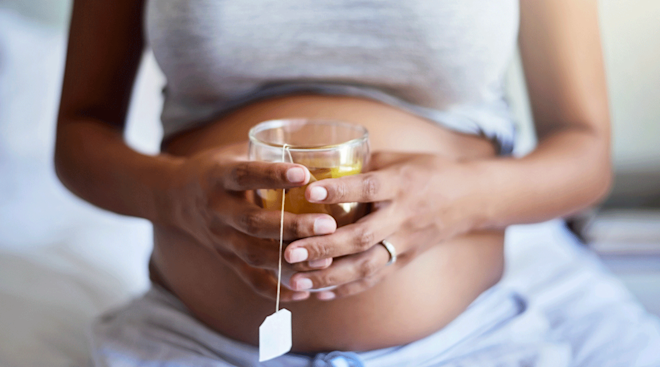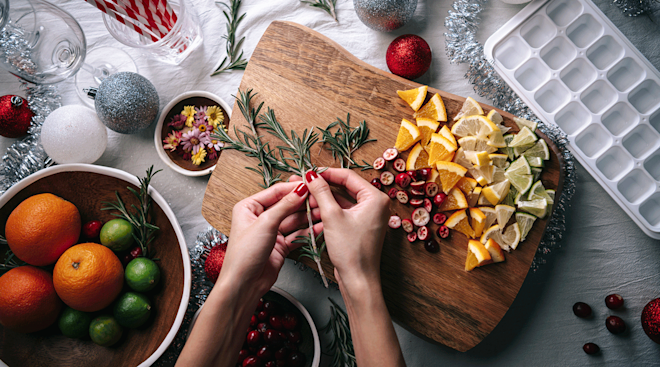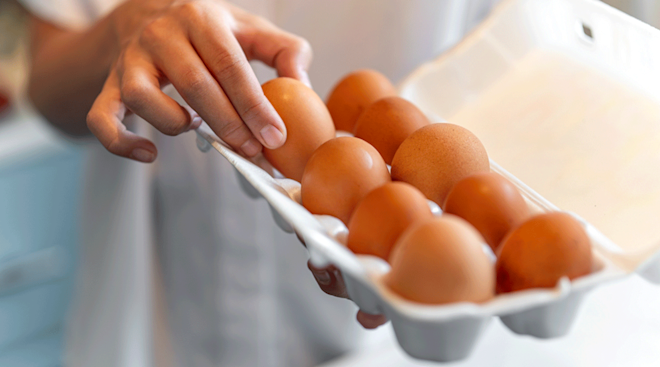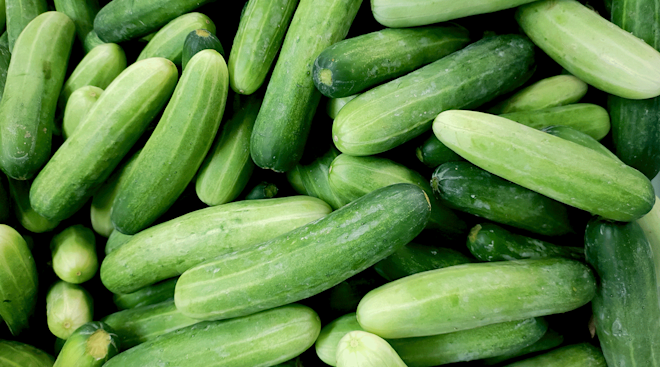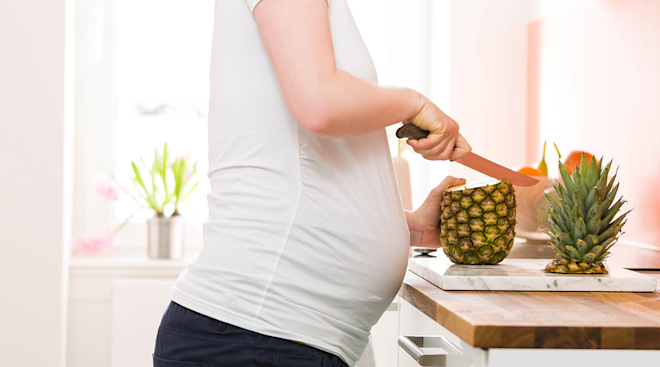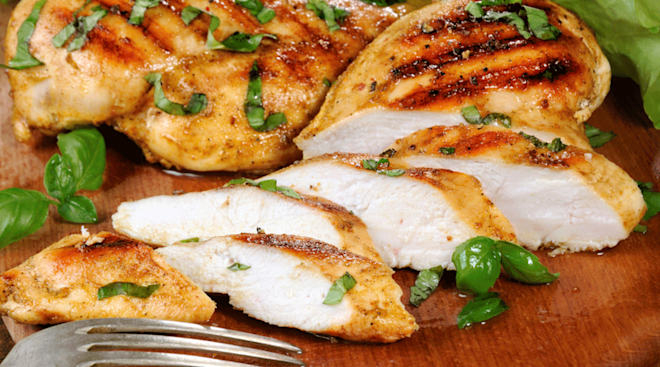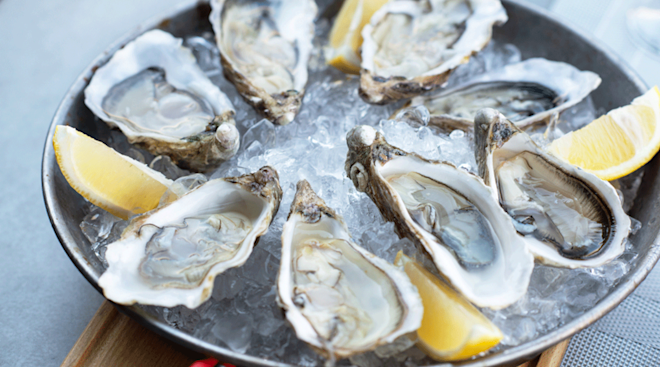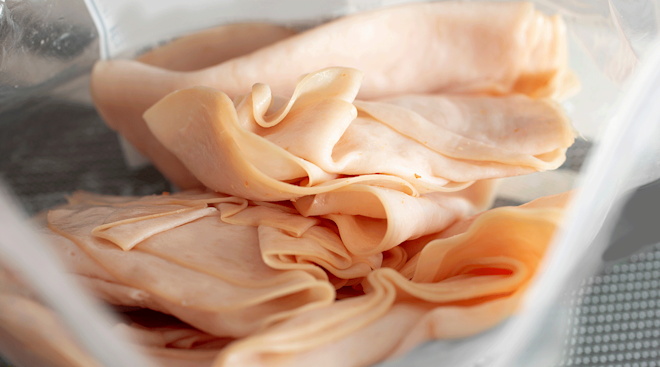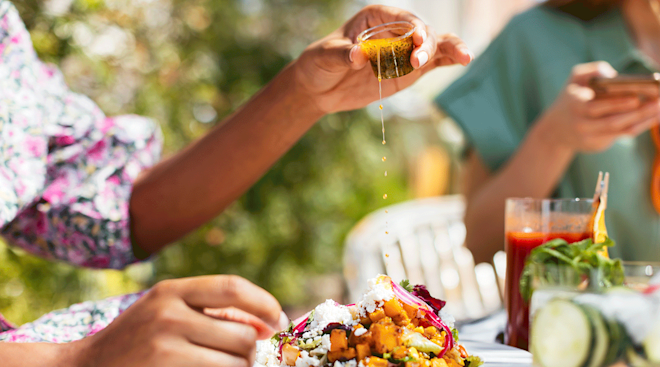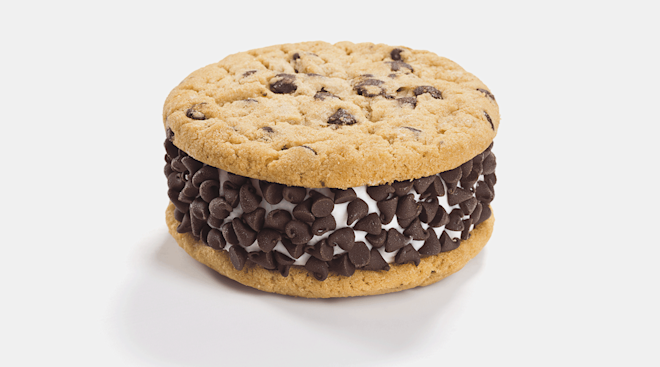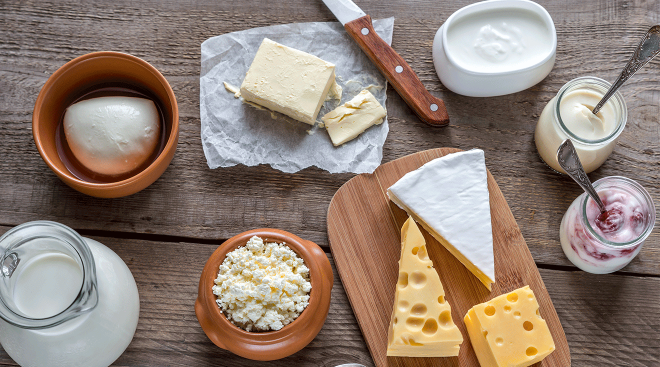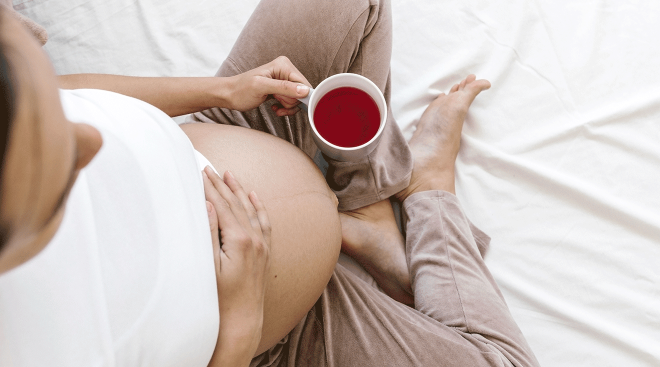Can You Use Artificial Sweeteners While Pregnant?
Maybe you sip diet soda every afternoon as a pick-me-up. Or you like to put Sweet’N Low in your coffee. But now that you’re pregnant, you’re wondering if you need to cut out artificial sweeteners along with soft cheeses and deli meat.
“I miss my Diet Pepsi very, very much,” says The Bump reader sweetpea10, sharing that all she drinks now that she’s pregnant is water. (“Sigh.”) Another community forum member, FLstatesweetie, says, “I have one Diet Coke a day. My doctor’s office said it was fine. They said they don’t tell patients to cut artificial sweeteners out of their diet—just to cut back.”
There aren’t specific guidelines around consuming artificial sweeteners while pregnant, per the American Journal of Gynecology. But there are things to consider when deciding whether to have ingredients like aspartame and Stevia while pregnant. Here, experts help you decide how to sweeten your days while you’re expecting.
- Some popular alternative sweeteners, like Stevia and aspartame, are generally considered safe during pregnancy when consumed in moderation.
- It’s best to stay away from other artificial sweeteners, like saccharin (found in Sweet’N Low), while pregnant.
- Consider natural alternatives to artificial sweeteners like monk fruit, honey and maple syrup.
You may not love this answer—but it depends. The American Pregnancy Association (APA) says that certain sweeteners are safe while others aren’t. (Details below.) In any case, it’s always best to consult with your healthcare provider if you’re not sure whether an ingredient is safe during pregnancy.
Some of the research on whether you can consume artificial sweeteners while pregnant is conflicting, but the studies likely contain a grain of truth (pun intended). Some studies suggest high amounts of these additives might increase the risk of preterm labor. Research also links artificial sweeteners with obesity, type 2 diabetes, metabolic syndrome and cardiovascular issues. Since artificial sweeteners have been found in breast milk and amniotic fluid, baby could potentially experience side effects too. Plus, pregnant animal studies suggest babies exposed to high amounts in the womb could develop impaired glucose tolerance and more visceral fat.
Of course, each sugar substitute is different. Here’s the lowdown on the most common options.
About 200 times sweeter than table sugar, this very low-calorie additive (see: NutraSweet, Equal, Diet Coke) is considered safe during pregnancy for most people, says Gaither. However, avoid it if you have the genetic disorder phenylketonuria (PKU), liver disease or high levels of phenylalanine in your blood. Plus, although the Food and Drug Administration (FDA) considers aspartame safe, the International Agency for Research on Cancer classifies it as a possible carcinogen to humans.
Technically, this sweetener—contained in brands like SweetLeaf, Stevia in the Raw and Truvia—isn’t artificial, since it’s made from a plant native to South America. But it’s like artificial sweeteners in that it’s calorie-free. When used sparingly, Stevia is generally considered safe, says Kecia Gaither, MD, MPH, associate professor of clinical obstetrics and gynecology at Weill Cornell Medicine and director of perinatal services at NYC Health + Hospitals/Lincoln.
Sucralose, in brands like Splenda, contains zero calories and is about 600 times sweeter than table sugar by weight. It’s considered safe in moderation during pregnancy, says Gaither.
This zero-calorie sugar substitute, in brands like Sweet’N Low, is 200 to 700 times sweeter than table sugar. Unfortunately, research has shown it crosses the placenta and could remain in the fetal tissue, according to the APA. To be safe, steer clear of this option during your pregnancy, advises Gaither.
Sugar alcohols (like xylitol, erythritol, sorbitol, isomalt, mannitol and hydrogenated starch) are generally considered safe in moderation during pregnancy, says Gaither. They contain more calories than artificial sweeteners: about 2.6 calories per gram. (For comparison, table sugar contains 4 calories per gram.) But because sugar alcohols are less sweet than artificial sweeteners, you might be tempted to use a heavy hand. Try to resist the temptation: Large amounts could increase your blood sugar and weight and lead to GI symptoms, like bloating and diarrhea.
Sugar, in the form of carbohydrates, provides your body with energy. But too much can increase your blood sugar and up risk for gestational diabetes. That’s why it’s best to limit added sugars while expecting, says Mariam Aboulela, MD, an ob-gyn with Memorial Hermann Health System in Houston.
Since artificial sweeteners contain zero or very few calories, they’re helpful when it comes to maintaining blood sugar and weight, says Gaither. But we won’t sugarcoat it: You shouldn’t have them in high quantities while pregnant.
If you want to stay away from artificial sweeteners while pregnant altogether, there are a few natural alternatives. We already mentioned Stevia, which is technically a natural sweetener and is generally considered safe for pregnancy. You can also try monk fruit, also called luo han guo. It has a taste that’s over 100 times sweeter than sugar, but no calories. There’s also some evidence that it contains beneficial antioxidants, but there’s not enough research on its health benefits. It’s generally considered safe by the FDA—and safe in moderation for pregnancy.
“I often opted for monk fruit when pregnant, and I still love it,” says Natalie Gontcharova, Senior Editor at The Bump and mom of one. “You can try it in healthy snacks like Aloha protein bars—these are so good!—and Catalina Crunch cereal, or on its own in products like Monk Fruit in the Raw. It’s sweet but not too intensely sweet, like a lot of artificial sugars.” And, you can always use ingredients like pure honey and maple syrup for a sweet treat without added sugar.
Can you have agave when pregnant?
Agave during pregnancy is likely unsafe, since there’s some evidence that it can stimulate the uterus and cause contractions.
Talk with your healthcare provider. But the sweet spot when it comes to artificial sweeteners and pregnancy seems to be caution and moderation.
Please note: The Bump and the materials and information it contains are not intended to, and do not constitute, medical or other health advice or diagnosis and should not be used as such. You should always consult with a qualified physician or health professional about your specific circumstances.
Plus, more from The Bump:
Mariam Aboulela, MD, is an ob-gyn with Memorial Hermann Health System in Houston. She earned her medical degree from Florida State University College of Medicine.
Kecia Gaither, MD, MPH, FACOG, is a double board-certified physician in ob-gyn and maternal-fetal medicine specialist and the director of perinatal services and maternal-fetal medicine at NYC Health + Hospitals/Lincoln. She also serves as an associate professor of clinical obstetrics and gynecology at Weill Cornell Medicine. She earned her medical degree from SUNY Health Science Center in Syracuse, New York, and holds a master’s degree in public health.
American Academy of Family Physicians, Dietary Guidelines for Pregnant Women
The American Journal of Clinical Nutrition, Association Between Intake of Artificially Sweetened and Sugar-Sweetened Beverages and Preterm Delivery: A Large Prospective Cohort Study, September 2012
American Journal of Gynecology, Consumption of Non-Nutritive Sweeteners During Pregnancy, August 2020
American Pregnancy Association, Artificial Sweeteners and Pregnancy
BMJ Open Access, Maternal Low-Dose Aspartame and Stevia Consumption with an Obesogenic Diet Alters Metabolism, Gut Microbiota and Mesolimbic Reward System in Rat Dams and Their Offspring, January 2020
Cleveland Clinic, Is Monk Fruit a Healthy Sweetener?, August 2021
Cureus, Exploring the Long-Term Effect of Artificial Sweeteners on Metabolic Health, September 2024
Food and Drug Administration, Aspartame and Other Sweeteners in Food, September 2024
Frontiers in Pediatrics, Maternal Consumption and Perinatal Exposure to Non-Nutritive Sweeteners: Should We Be Concerned?, June 2023
Indian Journal of Pharmacology, Artificial Sweeteners As a Sugar Substitute: Are They Really Safe?, May-June 2016
International Agency for Research on Cancer, Aspartame Hazard and Risk Assessment Results Released, July 2023
Johns Hopkins Medicine, Facts About Sugar and Sugar Substitutes
Journal of Toxicology and Environmental Health, Part B, Sucralose, A Synthetic Organochlorine Sweetener: Overview Of Biological Issues, November 2013
Nemours KidsHealth, Using Artificial Sweeteners During Pregnancy, January 2023
Nutrition Today, Stevia, Nature’s Zero-Calorie Sustainable Sweetener, May 2015
Public Health Nutrition, Effects of Prenatal Artificial Sweeteners Consumption on Birth Outcomes: A Systematic Review and Meta-Analysis, January 2021
RxList, Agave
Yale New Haven Health, Eat Any Sugar Alcohol Lately?
Real-parent perspectives
- Natalie Gontcharova is the senior editor of lifecycle content at The Bump
- FLstatesweetie
- sweetpea10
Learn how we ensure the accuracy of our content through our editorial and medical review process.
Navigate forward to interact with the calendar and select a date. Press the question mark key to get the keyboard shortcuts for changing dates.

































